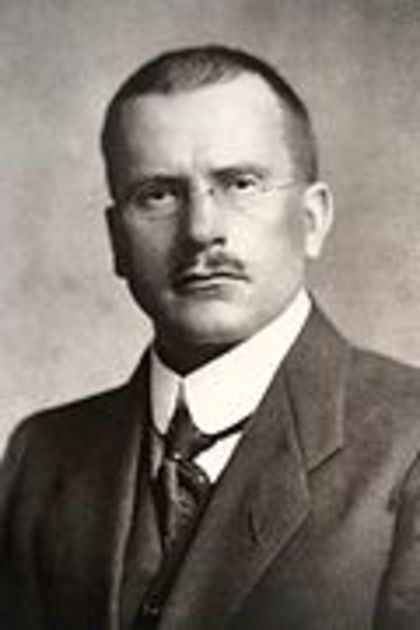
Carl Jung was a student of Sigmund Freud. Unlike Freud, he had a deep and positive interest in spirituality, religion, and mysticism. His psychological theories were still what we would call psychodynamic, in a sense that they involve understanding the ways that unconscious conflicts affect and determine functional or dysfunctional behavior. However, his understanding of the inner drives and conflicts were more universal and religion friendly. Jung understood man as having a need to reconcile inner models of behaviors and wishes to conform with societal expectations and models. The person must balance a healthy sense of individuality and differentiation with connection and relevance to the society.
You can see why Jung is appealing to the religiously-inclined personality. In this brief article, I am simply going to offer select quotes from Jung that speak for themselves in their humanity, decency and wisdom:
On Relationships:
- In the long run nothing is more unbearable than a tepid Harmony in personal relations brought about by withholding emotion
On Meaning in Life:
- About a third of my cases are suffering from no clinically defineable neuroses, but from the senselessness and emptiness of their lives it seems to me however that this can be well described as a general neuroses of our time. (written 80 years ago!)
- As for the so-called normal people, I am even worse off in their regard, for I have no ready-made life philosophy to hand out to them... for I do not know what to say to the patient when he asks me what do you advise? What shall I do? I do not know any better than he. I know only one thing: that went to my conscious outlook there is no possible way of going ahead, and I’m there for “stuck“, my unconscious will react to the unbearable standstill.
- However far-fetched it may sound, experience shows that many neuroses are caused by the fact that people blind themselves to their own religious promptings because of a childish passion for rational enlightenment. The psychologist of today needs to realize once and for all that we are no longer dealing with questions of dogma and creed. It relieves attitude is an element in psychic life who’s importance cannot be overrated. And it is precisely for the religious outlook and the sense of historical continuity is indispensable.
-
There appears to be a conscience in mankind which severely punishes the man who does not somehow, and at some time, -- at whatever cost to his pride cease to defend and assert self and instead, confess himself fallible and human. Until he can do this, an impenetrable wall shut him out from the living experience feelings of a man among men.
-
Our world is so exceedingly rich in delusions, that a truth is priceless.
On the Therapist's Relationship to the Client
- For the purposes of therapy, moreover, it is highly important for the analyst to admit his lack of understanding from time to time, for nothing is more unbearable for the patient than to be always understood.
- When the understanding is all on my side, I find it advisable to stress my lack of understanding. It is relatively unimportant whether the doctor understands or not, but everything hangs on the patient's doing so. What is really needed is a mutual agreement which is the fruit of joint reflection.
- We appeal only to the patient's brain if we try to inculcate a truth; but if we help him to grow up to this truth in the course of his own development, we have reached his heart, and this appeal goes deeper and acts with greater force.
On the Unconscious
- One thing we ought never to forget: almost the half of our lives is passed in a more or less unconscious state. The dream is specifically the utterance of the unconscious. We may call consciousness the daylight realm of the human psyche, and contrast it with the nocturnal realm of unconscious psychic activity which we apprehend as dreamlike fantasy.
- We can take the idea of compensation, so understood, as a law of psychic happening. Too little on one side results in too much on the other. The relation between conscious and unconscious is compensatory. It is always helpful, when we set out to interpret [an unconscious process] to ask: What conscious attitude does it compensate?
- If anyone should set out to replace his conscious outlook by the dictates of the unconscious—and this is the prospect which my critics find so alarming—he would only succeed in repressing the former, and it would reappear as an unconscious compensation
- The psychotherapist learns little or nothing from his successes . They merely confirm him in his mistakes, while his failures, on the other hand, are priceless experiences in that they not only open up the way to a deeper truth, but force him to change his views and methods.
And finally, my favorite:
- For twist and turn the matter as we may, the relationship between physician and patient remains personal within the frame of the impersonal, professional treatment... you can exert no influence if you are not susceptible to influence. It is futile for the doctor to shield him self from the influence of the patient and to surround himself with the smokescreen of fatherly and professional authority.

 Previous
Previous
